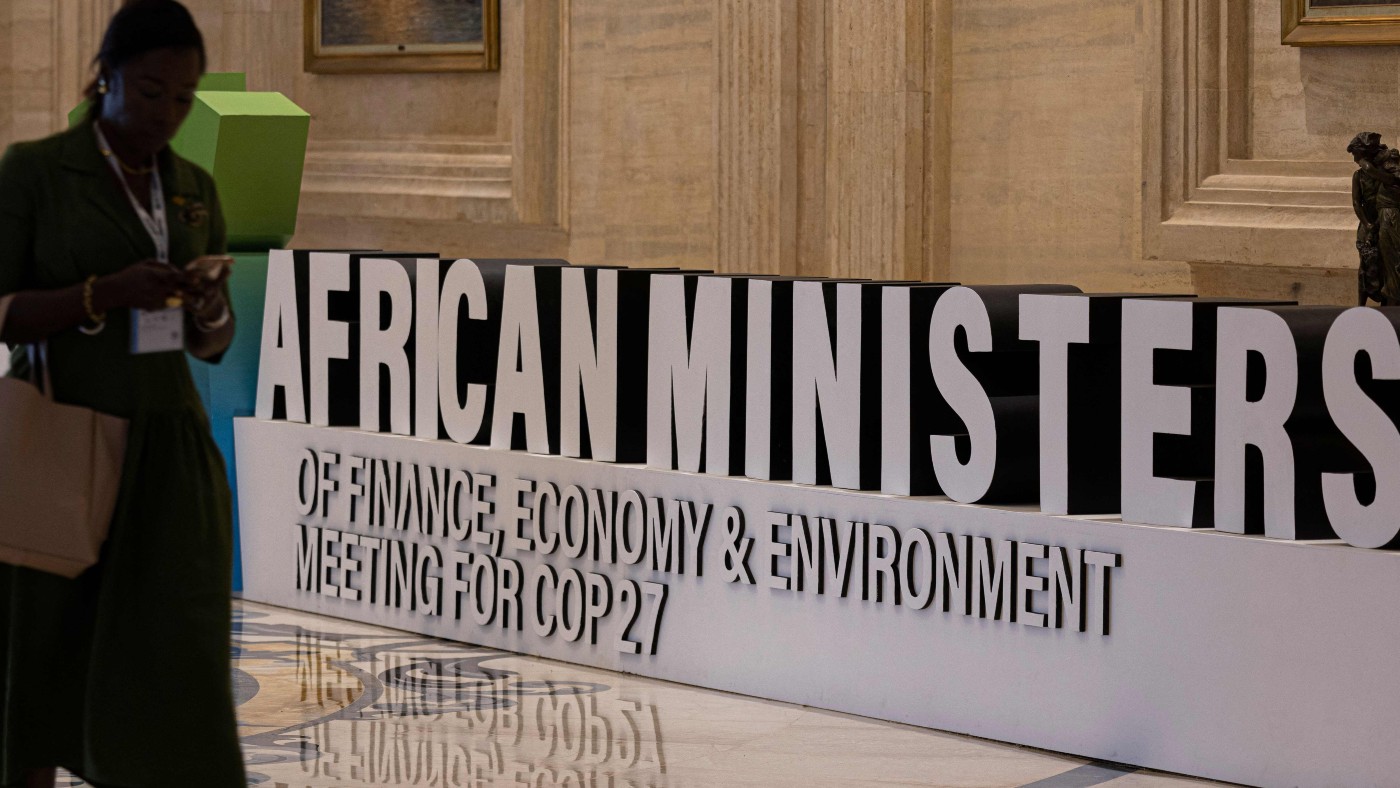Cop27 and Africa’s climate financing problems
Continent’s leaders to call for more fiscal assistance from developed world at upcoming summit

A free daily email with the biggest news stories of the day – and the best features from TheWeek.com
You are now subscribed
Your newsletter sign-up was successful
Africa’s leaders will demand more climate financing for their countries while opposing calls for a sharp shift away from fossil fuels during next month’s Cop27 summit, according to reports.
Egypt, “an oil and gas producer considered highly vulnerable to climate change, has positioned itself as a champion for African interests as it prepares to host the summit in Sharm el-Sheikh”, said Reuters. Following a pre-Cop27 meeting in Cairo last month, ministers from across the continent released a joint statement that “urged rich countries to meet and expand climate pledges”, the news agency reported.
The communique said that Africa receives less than 5.5% of climate financing despite “contributing to less than 4% of greenhouse gases emissions” and suffering a “disproportionate impact” from climate change.
The Week
Escape your echo chamber. Get the facts behind the news, plus analysis from multiple perspectives.

Sign up for The Week's Free Newsletters
From our morning news briefing to a weekly Good News Newsletter, get the best of The Week delivered directly to your inbox.
From our morning news briefing to a weekly Good News Newsletter, get the best of The Week delivered directly to your inbox.
What is Cop27?
The Conference of Parties (Cop) is the “supreme decision-making body” of the United Nations Framework Convention on Climate Change (UNFCCC). The first COP meeting was held in Berlin in 1995.
The summit is held every year, unless the parties to the convention “decide otherwise”, and “meets in Bonn, the seat of the secretariat, unless a party offers to host the session”, said the UNFCCC’s website.
Last year’s summit, Cop26, was held in Glasgow. Cop27 is on track to be one of the largest in the summit’s history, with 35,000 people registered to attend the meeting in the Egyptian coast city of Sharm el-Sheikh.
Zambia will act as the chair of the African Group of Negotiators (AGN) during Cop27, taking place from 6 to 18 November.
A free daily email with the biggest news stories of the day – and the best features from TheWeek.com
What do African nations want?
Ministers and climate representatives from more than 40 African countries gathered in DR Congo earlier this month “to discuss a common position” ahead of Cop27, Africanews reported.
Congo’s Environment Minister Ève Bazaiba Masudi said that despite having contributed little to climate change, Africa faced a “dilemma” over whether to “exploit our resources and feed our children and grandchildren or question these resources by letting our children and grandchildren die of hunger”.
Africa is looking to richer nations to provide the financing both to develop clean energy and to assist with the direct effects of climate change, known as “loss and damage compensation”.
Africa “is home to approximately 9% of the world’s gas reserves”, yet “43% of its population lacks access to electricity”, wrote urban sustainability and climate consultant Karim Eglendy in an article for the Chatham House think tank. Amid growing anger over such inequalities, “climate justice in the move to ‘clean energy’, specifically the right of some African nations to use their fossil fuel reserves”, will be a key issue at Cop27, which has been dubbed the African Cop.
The African Union initially proposed endorsing the continued use of gas during the transition to renewable energy sources. But “Egypt blocked this on the basis that a pro-gas stance would be ‘too controversial’”, said Elgendy.
Reparations for poorer nations disproportionately affected by climate change were also discussed at Cop26. These countries “had pushed for a mechanism that would account for damages caused by climate change”, said France 24. But despite being “the largest polluters”, wealthier nations “rejected the call and the participants agreed instead to open a 'dialogue' on financing damages”.
What next?
The “contentious and complex nature of exploiting Africa’s natural gas reserves may prevent a breakthrough” at Cop27, climate consultant Elgendy warned. Developed countries are unlikely to endorse the exploitation of Africa’s non-renewable energy resources, but have also failed to fulfil their previous funding promises for the continent’s renewal energy push.
In 2009, governments around the world pledged to provide $100bn a year by 2020 to help developing countries cut their greenhouse gas emissions and adapt to the impact of climate change. The pledge has not yet been fulfilled.
The chief economist at the African Development Bank, Kevin Chika Urama, told Reuters that the continent now faces a climate financing gap of about $108bn a year.
And “work to turn the pledges of climate finance from rich countries into projects on the ground helping poor countries has also been slow”, The Guardian reported.
Egypt’s minister for international cooperation, Rania Al Mashat, told the paper that “for us, what we want this Cop to be about is moving from pledges to implementation”.